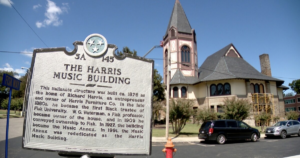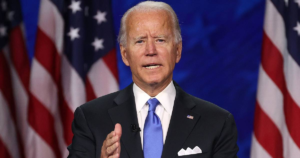
CARACAS, Venezuela (AP) — The Trump administration on Friday slapped sweeping financial sanctions on Venezuela, dramatically ratcheting up tensions between the two countries and making it harder for embattled President Nicolas Maduro to raise badly needed funds to prevent a debt default.
The sanctions Trump signed by executive order prohibit financial institutions from providing new money to the government or state oil company PDVSA. It would also restrict PDVSA’s U.S. subsidiary, Citgo, from sending dividends back to Venezuela as well as ban trading in two bonds the government recently issued to circumvent its increasing isolation from western financial markets.
“These measures are carefully calibrated to deny the Maduro dictatorship a critical source of financing to maintain its illegitimate rule, protect the United States financial system from complicity in Venezuela’s corruption and in the impoverishment of the Venezuelan people, and allow for humanitarian assistance,” the White House said in a statement.
A senior Trump administration official said additional sanctions would be imposed if Maduro doesn’t reverse course and meet opposition demands that he roll back plans to rewrite the constitution, free dozens of political prisoners and hold fair and transparent elections.
In a call to brief reporters on the measures, the official said the United States has significant influence over Venezuela’s economy but does not want to wield it in an irresponsible manner that could further burden the already-struggling Venezuelan people.
Reflecting those concerns and a strong lobby effort by the U.S. oil industry, Friday’s action stopped short of cutting off U.S. imports of Venezuelan oil that are crucial both to Venezuela’s economy and to Gulf refiners.
The sanctions follow through on Trump’s threat last month that he would take strong economic actions if Maduro’s increasingly authoritarian government went ahead with plans to create a constitutional assembly that is made up wholly of government loyalists. The opposition boycotted the vote to elect the body’s 545 delegates.
Since the assembly was seated, it has voted by acclamation to oust the nation’s outspoken chief prosecutor, take lawmaking powers from the opposition-controlled congress and create a “truth commission” that many fear will be used to target the government’s political opponents. Several prominent opposition mayors have also been removed or ordered arrested by the government-stacked supreme court.
U.S. Vice President Mike Pence signaled the move earlier Friday, tweeting that the U.S. “will not stand by as Venezuela crumbles.”
“The birthright of the Venezuelan people has always been and will always be libertad,” he wrote, using the Spanish word for “freedom.”
The sanctions are likely to worsen a crisis that has already seen Venezuela’s oil-dependent economy shrink by about 35 percent since 2014 — more than the U.S. economy did during the Great Depression.
Maduro, who is among some 30 senior officials already barred from the United States, seemed almost resigned to the possibility. He warned this week that the Trump administration was readying a “commercial, oil and financial blockade” in the mold of the one that has punished Cuba for decades. He said it would be meant to pave the way for a U.S. military intervention.
“The economic measures the U.S. government is preparing will worsen Venezuela’s economic situation,” he told foreign journalists Tuesday, vowing to protect the population from the worst effects of any sanctions.
There was no immediate government reaction Friday even as some leaders of the opposition expressed satisfaction.
“Venezuela’s increasing economic and political isolation has a sole culprit: Nicolas Maduro,” recently ousted Caracas-area Mayor Ramon Muchacho said in a tweet from exile in Miami.
David Smilde, a Tulane University sociologist who has spent decades researching Venezuela, said blanket sanctions that cut off the government’s cash flow and hurt the population are likely to strengthen Maduro in the short-term.
“It will bolster his discourse that Venezuela is the target of an economic war,” said Smilde, who supports Friday’s more limited sanctions targeting future indebtedness.
But with Venezuela’s streets calmer than they have been for months, and the opposition reeling from its failure to prevent the constitutional assembly from going forward, action from an increasingly concerned international community represents the best chance of reining in Maduro, he added.
Maduro is already struggling to combat widespread shortages and triple-digit inflation as oil production has tumbled to its lowest level in more than two decades. Any economic sanctions, however mild, increase the risk of a default on Venezuela’s ballooning debt.
The government and PDVSA have about $4 billion in debt payments coming due before the end of the year but only $9.7 billion in international reserves on hand, the vast majority consisting of gold ingots that are hard to trade immediately for cash.
Venezuela has taken desperate steps to remain current on its debt throughout the economic crisis, and the president has blamed his enemies for spreading rumors about any impending default.











More Stories
'All American' Season 3: How 'Homecoming' got the HBCU right – Los Angeles Times
HBCU Vice President, Black Mom of 3 Wins National Mother of the Year Award – BlackNews.com
The Importance of HBCUs as They Grow in Popularity (VIDEO) – Scripps News